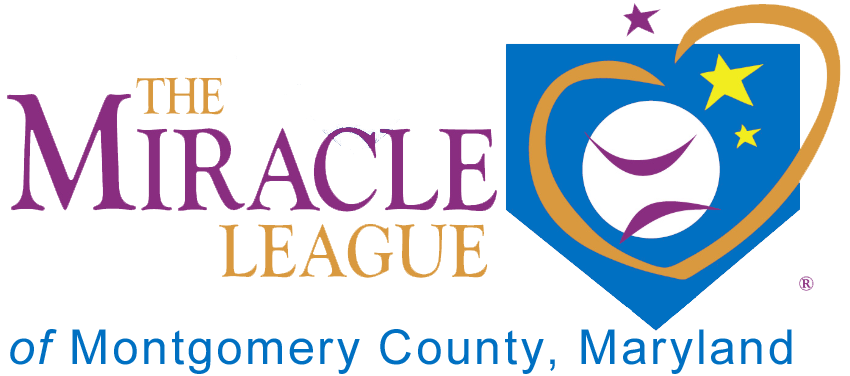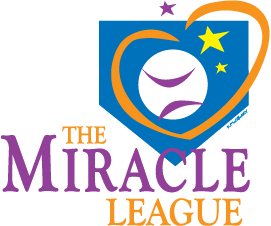Hometown: The Miracle Field
Germantown’s Miracle Field is giving kids with special needs the chance to play baseball
BY STEVE ROBERTS
Jim Leder looks over Miracle Field, a baseball field for disabled kids that he helped to create in Germantown. Photo by Michael Ventura.
IN THE BASEBALL MOVIE Field of Dreams, a ghostly voice tells an Iowa farmer, “If you build it, they will come.” So he constructs a diamond in his cornfield and the shades of old ballplayers magically appear.
Jim Leder heard a real voice and it was saying, “If you dream it, you can build it.”
The year was 2006. Leder was attending a convention in Montreal and a boy in a wheelchair gave a speech about playing baseball on a special rubberized field that could accommodate kids with disabilities.
“To this day I can’t explain it, but it hit me,” recalls Leder, a retired dentist who practiced in Bethesda for more than 50 years. “I could not get him out of my system. I came home and said to my wife, ‘It’s the damnedest thing, I keep thinking about this kid, we have to have a field like this.’ ”
Today we do. It’s called Washington Nationals Miracle Field and it’s in Germantown, not Iowa.
Every Saturday morning in the spring and fall, dozens of children with special needs show up. Some use wheelchairs or walkers. They suffer from Down syndrome and cerebral palsy, autism and brain damage. But here, they are all ballplayers.
One of them is Joseph Ryan, a freckle-faced 11-year-old from Kensington whose autism severely limits his vocabulary and attention span. “It feels like home to him when he’s out here, and that’s true of a lot of the kids,” Joseph’s father, Sean, says. “Baseball has gotten him out of his box.”
Leder’s devotion to baseball goes back to his childhood in Pittsburgh, where he rooted for the Pirates and sold ice cream and hot dogs at their old ballpark, Forbes Field. “I would make $100 or $150 on a Sunday doubleheader,” he recalls.
With the help of volunteers, children learn to play T-ball. Photo by Michael Ventura.
Life unfolded: the Navy during Korea, dental school, marriage, children. Leder and his wife, Pat, who’s from North Carolina, clashed over where they would live. They settled on a compromise, Montgomery County, right “in the middle” between their hometowns. “It’s worked out beautifully,” he says.
They raised their three children in Potomac, and Leder, now 84, had a thriving practice at the corner of River Road and Westbard Avenue. He always treated disabled patients, sometimes for free, even when others declined to do so.
“There’s a large group of people, I think, who are afraid of people with disabilities, they just think it transmits or something like that,” says Leder. “They feel uncomfortable around them.”
Not Jim Leder. After hearing that talk in Montreal, he approached The Kiwanis Club of Bethesda with his idea for a new ballpark. A local couple, Sid and Roxie Hayes, had just left a sizable bequest, to be used for youth baseball, so the timing was good. But the obstacles were enormous.
Dealing with the county bureaucracy was a “miserable occurrence,” Leder says frankly. And the price tag of $1 million far exceeded the Hayes’ gift. Enter Robbie Brewer, a Bethesda lawyer who helped convince the Lerner family, which owns the Washington Nationals, to donate $500,000.
Brewer’s mother was confined to a wheelchair in her last years, the result of a childhood bout with polio, and he sees the field as part of her legacy. “Life had dealt her a nasty blow, and I realized there were many people like my mother who need a constructive and positive outlet,” says the lawyer.
I felt many connections as I heard this story. In my hometown of Bayonne, New Jersey, civic clubs like Kiwanis International—which was founded 100 years ago—contributed greatly to the community welfare. When I played first base for the Elks Club Yankees in our local Little League, the Kiwanis Indians were our fearsome rivals.
My twin brother, Marc, like Brewer’s mother, contracted polio as a child and couldn’t play sports. He was in his 40s and coaching his daughter’s soccer squad, he once told me, when he felt like part of a team for the first time in his life.
I was thinking of Marc the morning I visited Miracle Field. The rules are simple. Every child bats. Everyone runs the bases. Everyone scores.
The scene can seem pretty chaotic—one boy dances around the outfield, a girl decides to sit on third base—but as Leder points out, it doesn’t matter. “In the child’s mind, they’re playing baseball,” he says.
The benefits go far beyond the sport itself. Ali Danielson’s son Caleb, age 4, from Montgomery Village, has cerebral palsy and uses a walker. Miracle Field “exposes him to other kids who use walkers; he doesn’t feel like an outsider,” she says.
Magdaline Deegbe’s 9-year-old son Joel has autism, and she sees baseball as therapy. “He learns to follow directions and stay focused—you can’t hit the ball if you’re not focused,” says Deegbe, a Germantown resident.
Eight-year-old Evan Miller, who lives in Derwood, is also autistic, and he’s prone to outbursts “that don’t go over well in other settings,” says his mother, Kelli. “Here there are other people like him, it’s helpful for him to see that. This is an encouraging environment, it’s OK to make mistakes.”
Still, Miracle Field is underutilized, vacant during most of the week. Leder estimates there are as many as 20,000 special needs children in the county but few know about the baseball program.
One reason is that the field lacks what other cities have—a Major League player who publicizes the facility. And getting special needs children out to Germantown can be a chore. “It’s a joyful time but it’s work for these parents,” Brewer says.
So Leder is trying to recruit other users: T-ball leagues for small children who can fall on the special surface and not get hurt; wounded veterans learning to live and play with prosthetic limbs.
But on Saturday mornings, the field is filled with cheering parents and smiling children. “It’s a happy place,” says Ben O’Hara, a 26-year-old teacher who helps run the countywide program. “It reminds you there’s some good in
the world.”
THE MIRACLE LEAGUE
17950 GERMANTOWN PARK DRIVE
GERMANTOWN, MD 20874
MLMCBB@GMAIL.COM
Interested in renting Miracle Field?
Many Thanks to Our Main Sponsor:

All Rights Reserved | The Miracle League of Montgomery County, Maryland

